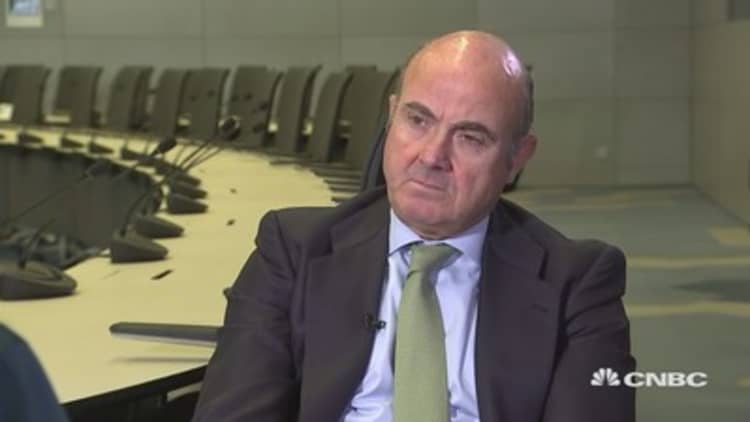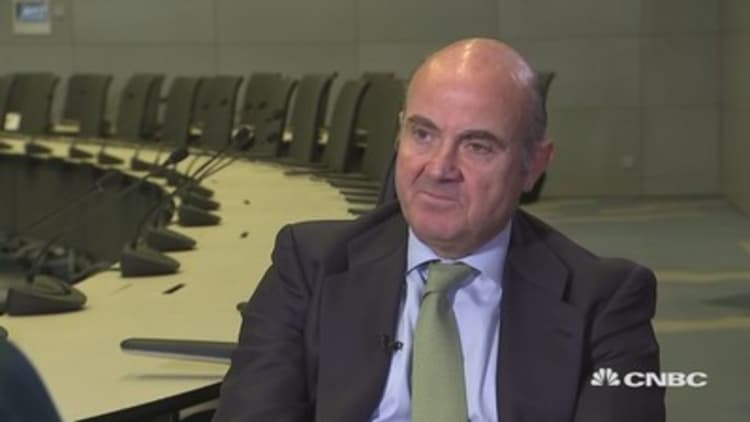
Signs of excessive financial risk-taking as well as slowdown in bank profitability are some of the biggest challenges in the euro area, the European Central Bank (ECB) said on Wednesday.
The euro zone has been struggling to grow in the aftermath of the sovereign debt crisis of 2011. The ECB, which oversees monetary policy across the 19-member region, has adopted several stimulus measures since then to boost the economy. In 2018, the ECB decided to scale back some of that stimulus amid improved data. However, the central bank returned to its easing stance in full force in September this year as prices and growth rates are treading water.
Luis de Guindos, Vice President of the ECB told CNBC Wednesday that the current report sees two main differences from the financial stability assessment made in May. "The first one is the lower for longer environment of interest rates and the second one is that growth is more modest than what it was six months ago."
The euro area is set to grow 1.1% this year and 1.2% in 2020, according to ECB forecasts released in September.
The central bank had warned in May of "persistent downside risks," which included global trade uncertainty and the U.K.'s departure from the EU. Now, the ECB believes these two risks have become less pronounced, but warned of other potential shocks in the financial system.
"Now, I think there are two main challenges," de Guindos told CNBC's Annette Weisbach. He cited low profitability of European banks and an increase in risk-taking.
"This low interest rate environment also affects the investment strategy of the asset managers and in this respect this part of the financial system could give rise to bigger risks," he said.
According to the central bank, institutions such as investment funds and insurance companies have been more risk-taking in the current low interest rate environment. This means that in case of a sudden market shock, for instance, stress among these institutions could spread to the wider financial system – leading to losses for companies and individuals.
The ECB also cited in its financial stability report risks in the property market. Riskier firms are taking on more borrowing and property prices continue to rise in "a number" of euro area countries.

Cross-border mergers
Meanwhile, the ECB report also states that bank profitability in the euro area is likely to deteriorate. The report states that past misconduct by banks has weighed on global bank profitability. "While US banks were particularly hit by misconduct costs in the immediate aftermath of the global financial crisis, European banks have been more exposed since 2015."
Speaking to CNBC, de Guindos suggested that euro zone banks should look at mergers as a way to cut costs and boost profitability.
"With respect to large institutions, I think we should focus much more on cross-border," he said. "We have a single currency, we have a single supervisory, we have a single resolution (mechanism), I hope that overtime we will have a single insurance deposit scheme and so, it would be important to have real euro zone banks...I think cross-border consolidation is something that is going to be very important in the near-future," the former Spanish minister said.
Mergers between euro zone banks have been somewhat a controversial subjects after Deutsche Bank and Commerzbank failed to reach an agreement earlier this year.


